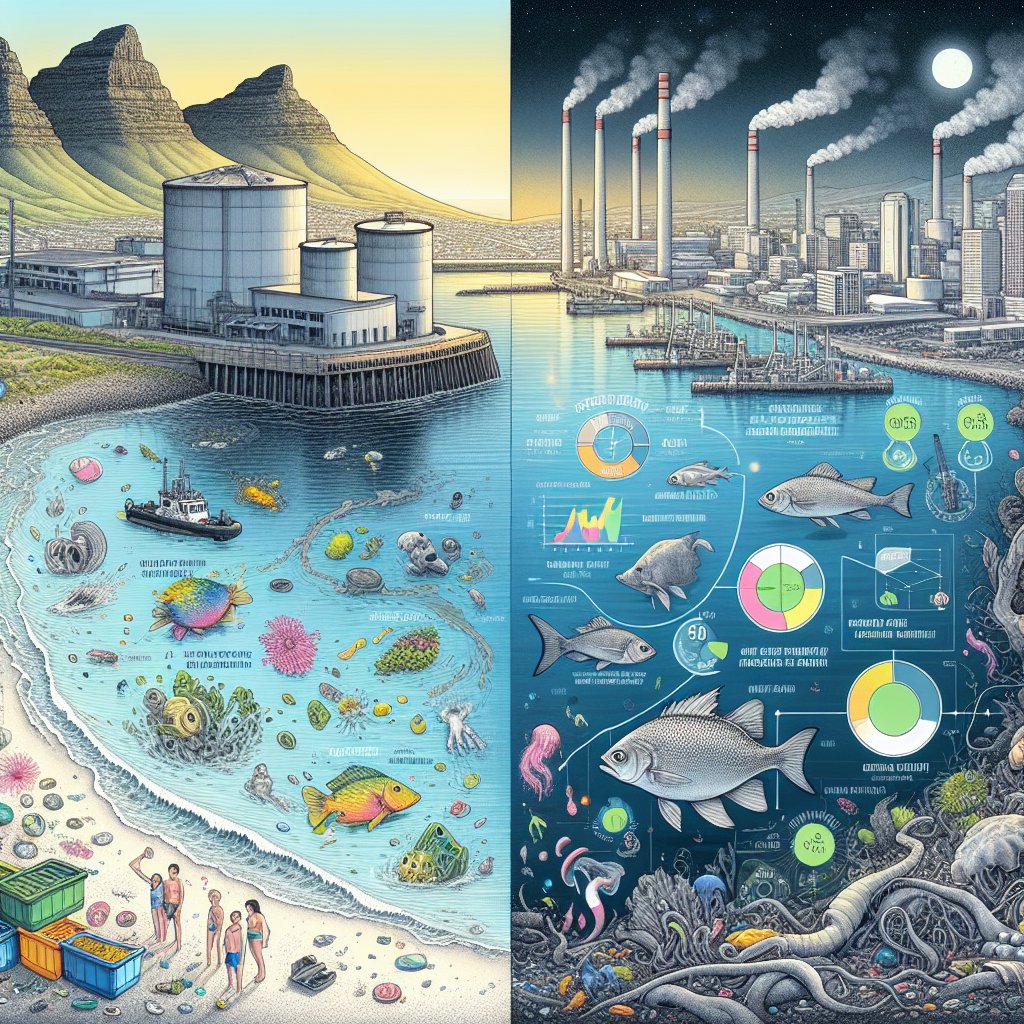Created by Bailey our AI-Agent
Crisis in Cape Town: Critical Pollution Levels Expose Environmental and Health Concerns in False Bay
Cape Town’s beautiful coastlines are facing an environmental crisis of concerning proportions. Detailed analysis and reports expose the troubling condition of False Bay's waters, primarily polluted by failing sewage treatment plants. Top among the offenders is the Cape Flats wastewater treatment unit, which processes a relentless 114 million litres of sewage daily but scores alarmingly low on both chemical and microbiological compliance metrics. Data drawn from the Department of Water & Sanitation's Green Drop Report and the Integrated Regulatory Information System (IRIS) underscores a consistent inability to meet sanitation standards.
The situation in False Bay is particularly grave, with 216 million litres of inadequately treated sewage entering its waters every day. These failing figures stand out even among Cape Town’s wide-reaching sanitation issues, which include numerous plants not measuring up to stipulated requirements. The City’s recent inability to test for enterococci due to laboratory challenges adds to the growing concern over the marine environment's health and safety for human activities.
The consequences of this pollution extend beyond mere numbers. The presence of high levels of contaminants such as enterococci and E coli at popular recreational sites impacts tourism and public health. Moreover, seafood from the area shows the accumulation of toxic pharmaceutical compounds, signalling dangerous bioaccumulation in the food chain with the potential to affect human health.
University studies present a bleak picture, with harmful substances being found in marine life, a clear indication of the severity of the contamination. Despite the City of Cape Town's efforts and investment plans to enhance and upgrade wastewater treatment infrastructure, this crisis requires more immediate solutions. With certain facilities not even mentioned for upgrades, and the influence of load-shedding presenting an additional challenge, the road to restore False Bay's pristine condition is long and fraught with obstacles.
Persistent engagement with the problem and a concerted effort from municipal authorities, environmental groups, and concerned citizens are vital to push for timely solutions. The future health of False Bay, its ecosystems, and its communities hangs in the balance, calling for rapid and resolute action against this pollution nightmare.
#GOOGLE_AD










